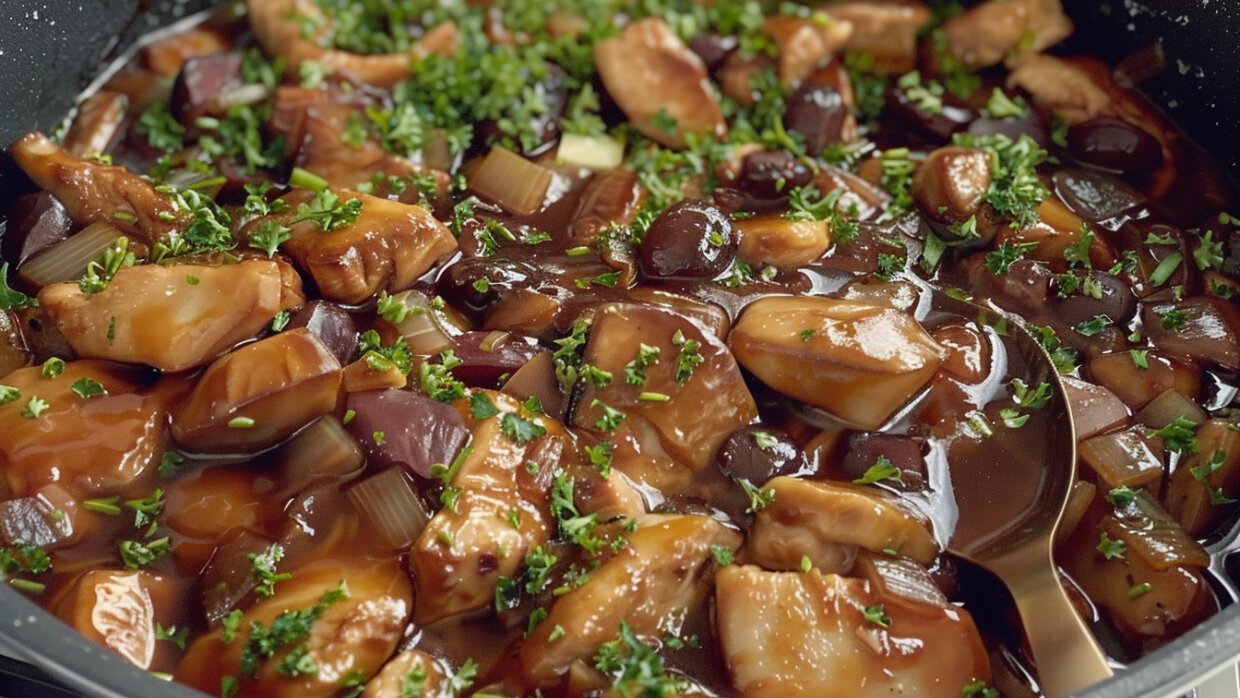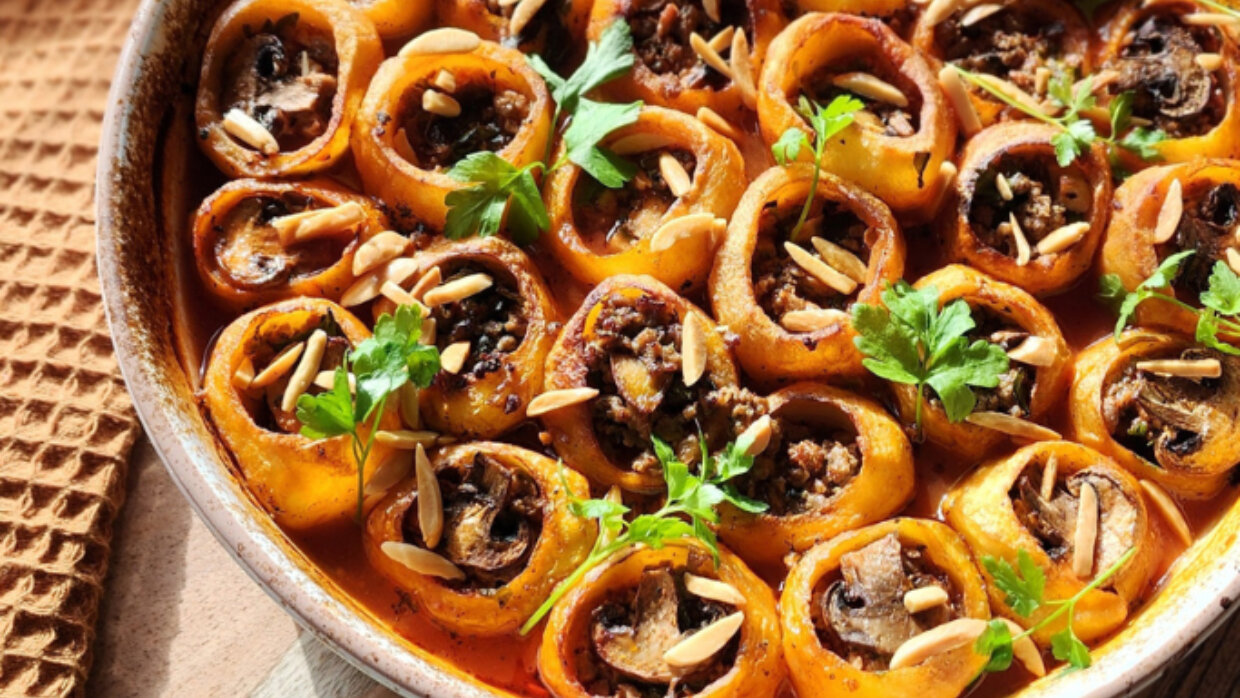There’s no doubt that the internet has completely revolutionized our lives. From the way we work, interact, and even cook. However, one of the most difficult things about the internet is the stress it can cause when we're trying to make the most simple decisions. Nowadays, we live in a world where a quick online search for recipes opens up a Pandora's box of gastronomic delights, from traditional favorites to innovative twists. While the Internet has brought us many advantages and has made so much of our lives easier, it has also brought significant downsides that most of us still don’t fully understand. Like most new inventions, it usually takes time for us to truly experience their impact and the lasting effects they have.
Decision Paralysis
With an overwhelming array of recipes, dishes, and culinary options available at our fingertips, the simple act of choosing what to cook can turn into an exasperating endeavor. We needn’t look too far in the past to envision a time when every time you went into the kitchen, you just picked up a cookbook and randomly picked the first page you landed on. Now, a simple search for "chicken soup" brings up over 1.5 billion results on Google! From Matzah Ball Soup to Thai Coconut Chicken Soup to African Peanut Stew.
Decision paralysis is when we find it so difficult to decide between actions A and B that we choose option C or do nothing at all. What happens is that the more options we have in front of us, the harder it becomes to choose. When we have to choose from possibilities that are challenging to compare, decision paralysis sets in. In many cases, this leads to FOMO (fear of missing out) and regret, thinking of what could’ve been had we chosen differently.
A research study from Columbia University analyzed more than three-quarters of a million clients of a large investment group and found that contrary to common intuition, having a greater number of retirement saving plan options actually decreased the percentage of people who started saving towards their retirement. The more saving options available, the fewer people chose any retirement saving plan.
FOMO
Having so many options does have its advantages. For the culinary adventurer, it's an enticing playground to explore, but narrowing down the choices can be helpful. Years ago I decided to become a pescetarian so my choices at restaurants and in finding recipes to cook are automatically limited. Some find this too restricting, but this allowed me to have a far less stressful experience ordering and making food by limiting my options and therefore minimizing any decision making challenges. For many, the abundance of choices tends to become overwhelming, making the decision-making process akin to walking through a maze without a map, we’re left feeling lost and confused. Perhaps regretting our choices isn’t a new thing, but it definitely has been exacerbated in the Internet age.
A recent research study found exactly to what extent people regret past decisions. The study was conducted in a Harvard photography class. Throughout the course, students were instructed to take many photos, and at the end of the course, they could select their two favorites and frame them. At the end of the study, they were told that there was a change of plans and that only one photo would be framed.
Half of the students were told to choose their photo right away without the option of changing their decision later. While the other group of students had to choose one photograph as well, but they were also offered the opportunity to change their decision whenever they pleased throughout the following week.
During the course of the experiment, the student’s satisfaction with their chosen photograph was measured across the two groups. The study went on to show that when the students had the opportunity to change their minds, they were significantly less satisfied regarding their selected photograph. On the contrary, those who couldn’t change their decision were far more satisfied due to them not having to feel as if they had missed out.
Social Media & Food
Social media platforms have only made these issues worse. With Instagram feeds looking like virtual food courts and influencers and bloggers constantly tempting us with tantalizing food imagery. Scrolling through a never-ending feed of aesthetically pleasing dishes only adds to the struggle of finding the perfect meal to prepare.
The pressure to create picture-perfect, Instagram-worthy meals can detract from the simple pleasure of preparing a delicious dish for ourselves or our loved ones. So, how can we navigate through this labyrinth of choices and avoid the trap of decision paralysis? One approach is to add some limits. While trying new dishes is exciting, developing a personal repertoire of go-to recipes can streamline decision-making and reduce the anxiety associated with too many options. For example the kosher dietary laws limit our choices by removing the option to eat pork or shellfish or mix meat and dairy, these restrictions help narrow down our food choices and connect us to our heritage.
In the Jewish culture, food and recipes play a central role in connecting us to our culture. Family recipes handwritten in Yiddish on stained, well-loved index cards have been long lost for most of us. Yet, the comfort of your Bubbe's chicken soup or Zaide's famous brisket still calls to us. Navigating this sea of infinite recipes risks disconnecting us from those traditional dishes that ground us. In Eastern European countries such as Poland and Hungary, you would be lucky to enjoy just one or two different dishes a week, and while variety may be the spice of life, the only spice they enjoyed was salt and pepper. The scarcity of ingredients, poverty and harsh climates led to a limitation of options, but yet they created the comfort food we still love today…perhaps there's something we can learn from their simpler life?
Less is More
Yes, it's a gift having unfettered access to global cuisines and chef creations. But don't forget the old adage - sometimes less is more. Ultimately, the internet's culinary cornucopia should be viewed as a tool to enhance our culinary experiences rather than a source of frustration. Embracing the knowledge and inspiration it provides while maintaining a sense of purpose and culinary identity can empower us to navigate this vast digital world with ease. By finding a balance between the new and the familiar, we can savor the journey of cooking without losing sight of the real goal at hand - making a delicious and satisfying meal.


















Less is NOT "more!" Kashrut restrictions deprive one of gastronomic pleasure and instead of somehow boosting one's "connection with God," create resentment and regret. Self-denial (of pleasurable things) is, at bottom, masochistic - whether or not done in the name of religion. The article above starts out with a reasonable premise - that there can be a decision delay and perhaps confusion when there are "too many choices"...but then employs this construct in defense of Kosher restrictions. It's an intellectually dishonest argument.